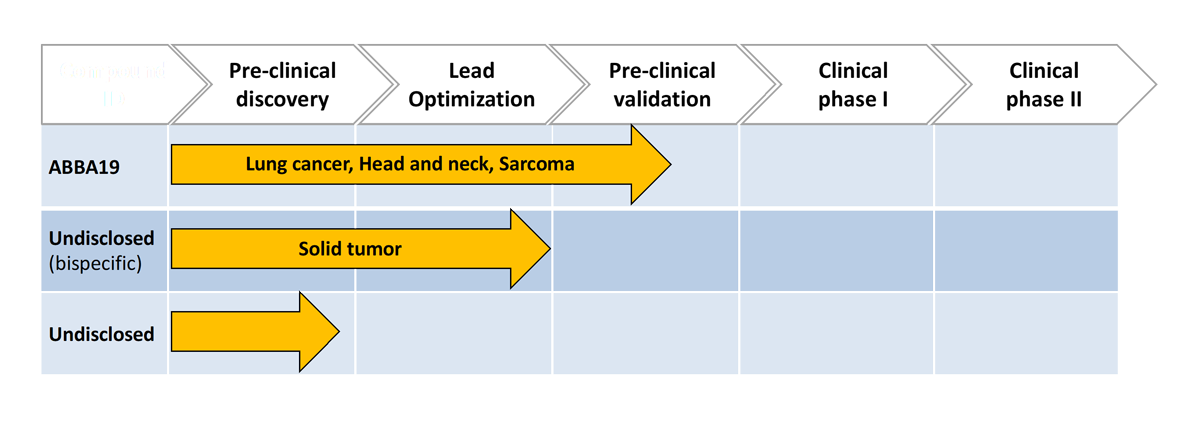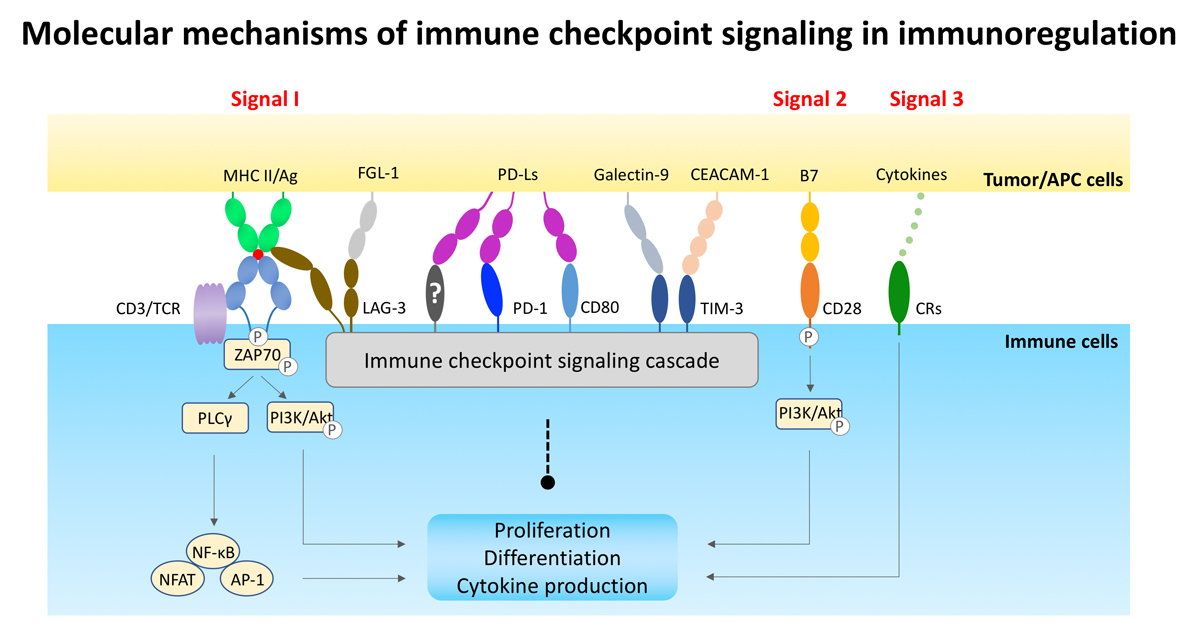R & D Program
We discovered several novel protein targets related to checkpoint inhibitors, that potentially suppress immune activation across both lymphoid and myeloid lineages. A PCT patent application on several therapeutic antibodies against one of our targets has been submitted.
Development Pipeline:

Scientific basis

Antigen-specific T-cell activation is mediated through TCR signalosome (signal 1) and enhanced by CD28 signaling (signal 2) and local cytokine-mediated signaling (signal 3), which subsequently promote T-cell proliferation, differentiation and cytokine production. This process is tightly regulated by a set of receptor proteins, called immune checkpoint inhibitors (ICI), such as LAG-3, PD-1 and TIM-3, etc., which initiate inhibitory signals to decrease immune cell activity in order to avoid tissue damage. In tumor microenvironment (TME), cancer cells camouflage themselves with overexpression of ICI ligands to inhibit immune cell activity and consequently escape from immunosurvaillance at TME. TCR: T-cell receptor; Ag: antigen; LAG-3: Lymphocyte-activation gene 3; FGL-1: fibrinogen-like protein 1; PD-1: programmed death protein 1; PD-Ls: PD-1 ligands; TIM-3: T-cell immunoglobulin and mucin-domain containing 3; CRs: cytokine receptor.
